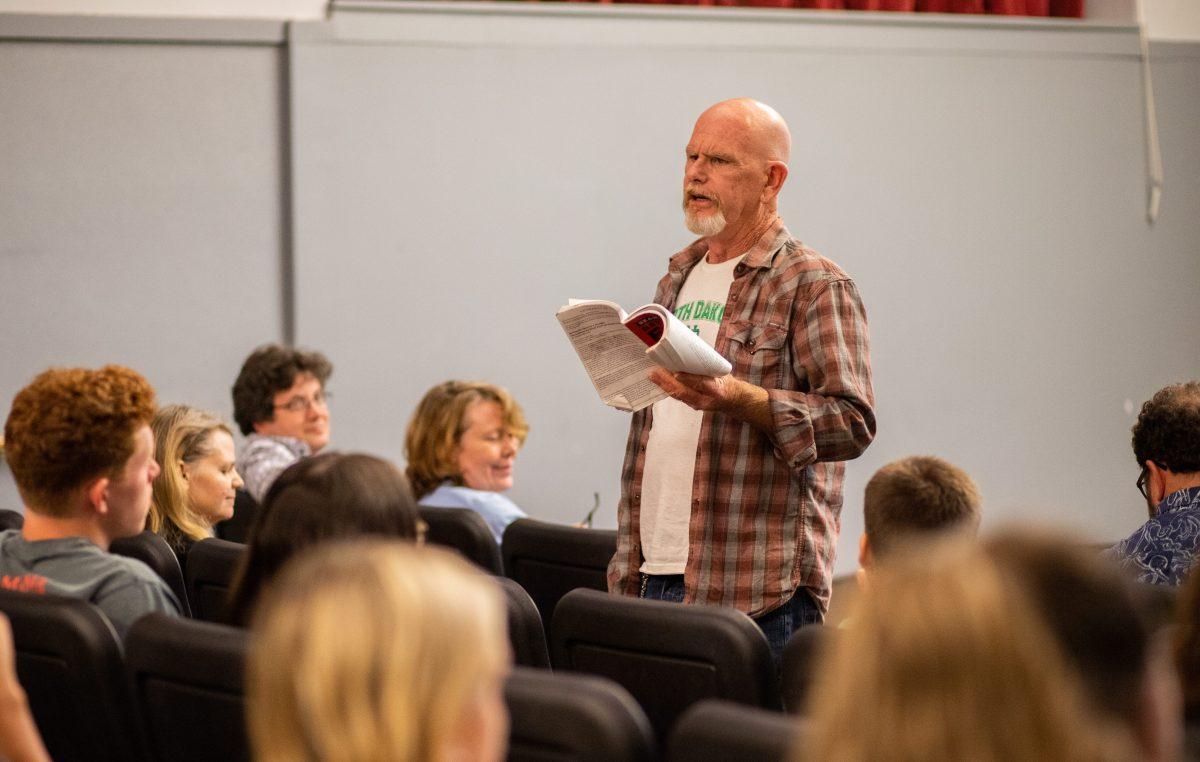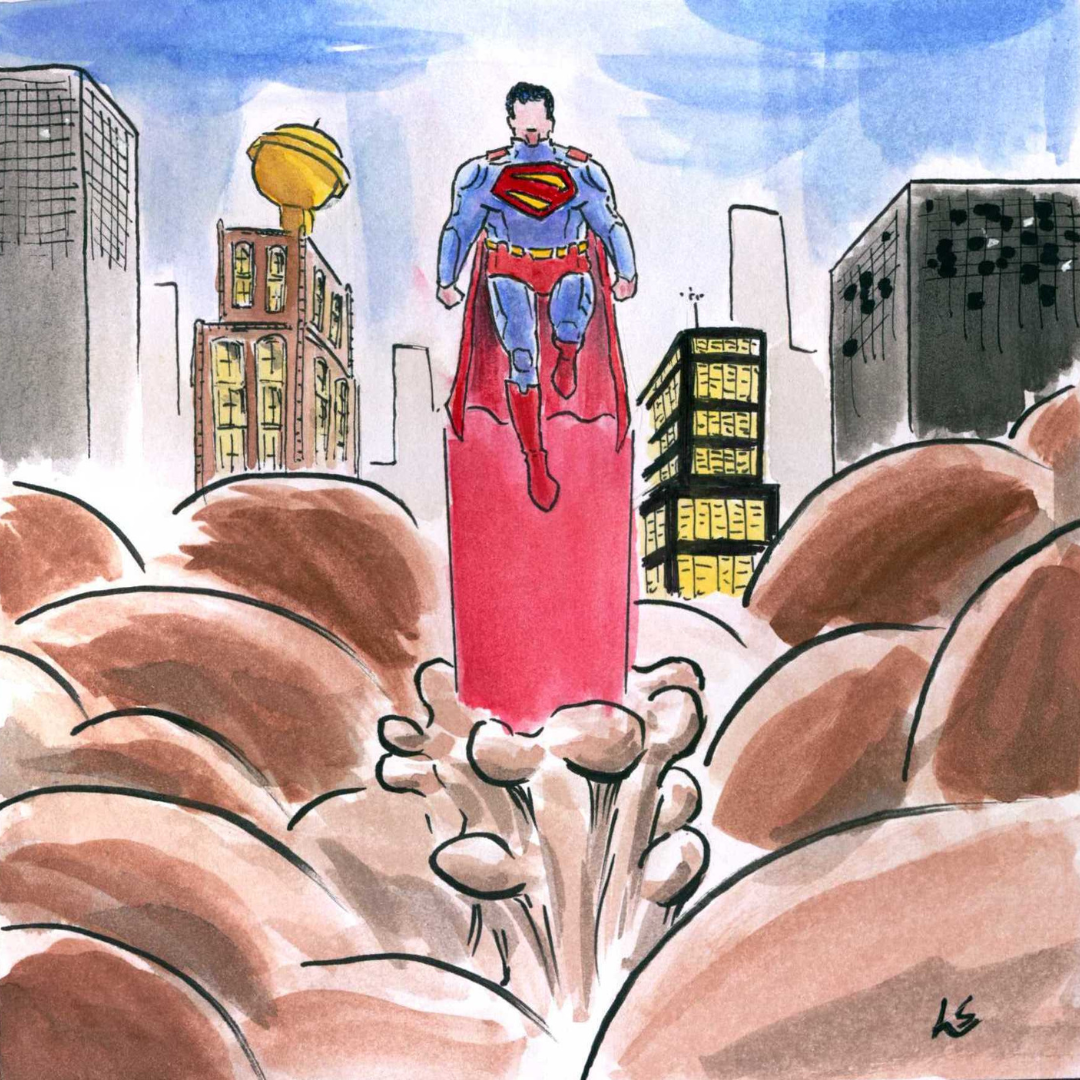Students and faculty gathered in the Forum Theatre on Sept. 18 to hear Seamus McGraw, author of “A Thirsty Land: The Making of an American Water Crisis” share his collection of stories from across the U.S. and his unique perspective on how to approach the issue of climate change.
“I’m of the belief that we are facing an existential crisis, and that is our changing climate,” McGraw said. “That is the second most critical existential crisis, only to our inability to talk to each other.”
The beginning of the solution to climate change is quite simple, according to McGraw: listen to people, their stories and their experiences.
“If you want to talk about these issues, you have to listen to the people who are touched by them,” McGraw said. “I’ve talked to fishermen from New Jersey, farmers in Iowa, hunters in Montana, and I came away from that with a tremendous amount of hope.”
McGraw spoke about his experiences talking to people from all across the U.S., many of whom stood on the opposite side of the spectrum as him in terms of politics. McGraw’s idea is that listening to the stories of people and having these conversations is the most important part of reclaiming the debate about climate change.
Gia Picknally ’21 said she left McGraw’s presentation feeling empowered, but she agreed that our inability to talk about these issues is a major problem in our country.
“I think that all of these labels we have for each other—the left and the right— puts us in a place where we can’t talk about the important issues,” Picknally said.
Liam Majewski ’22, another student who attended the presentation, said that McGraw’s perspective can help us learn how to have these important conversations.
“We all feel like we know what’s important, but before we address that, we have to know how to bring it up,” Majewski said.
As he told the tales of his travels to farms and cities around the country, McGraw described his process for starting these conversations. When traveling, he often stops at a gas station to fill up his motorcycle and ends up in a 45 minute conversation with a stranger.
“You can start with [a conversation about] the weather, and next thing you know you’re talking about the climate,” McGraw said. “It’s just a question of engaging people and recognizing that there’s something you can learn from everybody you meet.”
Ann Green, Ph.D., professor of English, explained that the conversations that McGraw started are necessary for St. Joe’s students.
“I think we live in a bubble, we have a St. Joe’s bubble,” Green said. “It’s important for us to expand our thinking and to think about what people who we might not agree with on the surface think about climate change.”
Betsy Rich, a former professor of environmental science at St. Joe’s, said that she enjoyed the optimism that McGraw used to talk about these issues. She expressed that there are ways that the younger generations can participate in the ongoing battle against climate change.
“Personal actions are important in your daily lives.” Rich said. “But what’s really important is becoming activists and writing and demonstrating and starting new initiatives.”
Despite the enormous issue of climate change that threatens our way of life on Earth, McGraw remains optimistic. He said that the solution starts with something as simple as saying hello and finding common ground.
Talking to a room full of mostly college students, McGraw emphasized the importance of action.
“We are wasting in our country the most precious resource we have,” McGraw said. “The wisdom and good will of each other.”
Addressing the audience directly, McGraw left with a message.
“I’m 61 years old,” McGraw said. “It’s not my job anymore. It’s yours.”














































